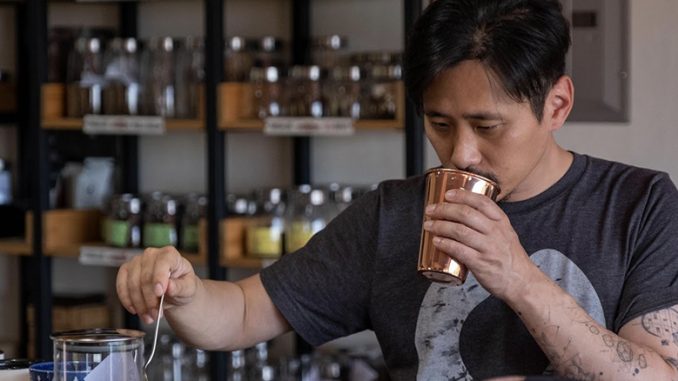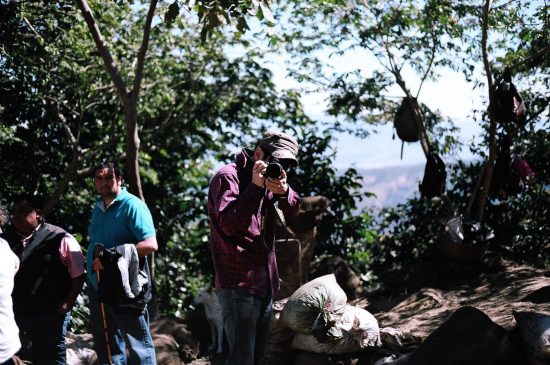
We talk to the co-founder and green coffee buyer of Fritz Coffee in South Korea about his journey in coffee and Fritz’s buying philosophy.
BY SUNGHEE TARK
SPECIAL TO BARISTA MAGAZINE ONLINE
Cover photo courtesy of Wonjin Cho
From the editor: Recently, we spoke with Fritz Coffee Company co-founder BK Kim in Seoul, South Korea. A look at Fritz wouldn’t be complete without speaking with their other co-founder to get the full scope of what this roasting company is all about!
In 2014, Geunha Park, the co-founder of Fritz Coffee Company, won the national barista championship in South Korea and also launched Fritz Coffee Company. In its six years of operation, Fritz has built an unwavering reputation in the Korean specialty-coffee scene as one of the best places to get great coffee and bread.
I met Geunha Park for the first time in Costa Rica. He, along with BK Kim, was on a trip to visit their partner farmers and their families. After chatting, I quickly realized that they were quite different from many other coffee companies, from their design to their green-bean-buying philosophy. We talked to Geunha about his journey in coffee, Fritz’s purchasing philosophy, and what he hopes for the coffee industry.

Sunghee Tark: Tell us about your journey in coffee.
Geunha Park: I had my first ever coffee drink about 20 years ago in a coffee shop right in front of my house. I ordered the first one I saw on the menu and that happened to be an espresso. And I remember thinking, “How is this supposed to be consumable?” It was bitter, and nothing that I’ve ever tasted before. Seeing that on the menu, I became curious to understand why people even drank this. I frequented the shop daily and kept ordering espresso. Six months later, I got an offer to work at the café and I started my career in coffee. Turns out that I was the first person ever to order an espresso at the shop—because not many people in Korea back then enjoyed espresso—and that also intrigued the shop owner to know who I was to offer me the job.
Interesting. What kept you in coffee since the first interaction, and job?
The fact that I was able to see the outcome of my labor immediately was a great attraction point for me. You could see how the customers enjoy (or do not enjoy) your drink almost minutes after you’ve done your job. Then, I went to do mandatory military service for two years, during which I read all the magazines and content out there about coffee in Korean. I didn’t think I would pursue a career in coffee after I came out from military service though. I studied music and vaguely thought perhaps I will blend the two, but never imagined I would be working in coffee.
After I was done with the military service, I worked in coffee (specifically commercial-grade coffee) for at least five or six years. Then in 2010, I first was exposed to the world of specialty coffee.
I attended a cupping class at Coffee Libre. I never had experienced specialty coffee before then and wanted to learn where to start. It wasn’t easy as I already built my reputation as a barista, but mostly in the commercial-grade coffee world (because even back then, the division was quite clear). To transition entirely to the specialty field that I had no knowledge of was challenging. That cupping class, however, really changed my perspective on coffee. I learned about tasting, processing, and much more that goes into producing a cup of coffee that I didn’t know about prior. Then, I was offered a job to work for Coffee Libre soon after and competed for the first time in the barista championship, to which I did not qualify.
I worked at Coffee Libre for about a year and then left. I competed in a barista competition subsequently after and won the championship. This is when my current co-founders, BK Kim, Dohyeon Kim, and Elle Jeon, helped me prepare for the competition. After I became the 2014 national champion, I left for the U.K. to study English, because the world championship was going to be in English, unlike the national championship in Korea.
While I was in London, I received a message from one of the current co-founders. They asked me to join them as they started Fritz Coffee, to which I delightedly did.

Has direct trade always been part of what you wanted at Fritz? I believe it’s a convoluted term. How do you define it and what’s your buying philosophy?
Perhaps what we have spoken a lot about during the business formation and development phase of Fritz attests to who we have become today. We spoke a lot about communities, relationships, and what excited and motivated us individually.
After weeks and months of discussion, we came to conclude that we would be happy if we were surrounded by, and can be part of, a community of people that love their jobs and what they do. This led us to form our “collective”—this collective includes our staff and our partner producers in origin. Direct trade to us has been a language that we’ve used to communicate what we do with our customers. We’ve used it to mean that we connect directly with our producer partners at origin and build long-lasting relationships with our partners—perhaps relationship-based trade is also a good term to explain what we do.
Interesting. How do you start a relationship in the beginning? What gets you to interact with a producer to build that relationship first?
I have to be completely honest, I’m not too sure. We have crossed paths with different coffee producers in the past, and there seems to be a moment where you feel like there’s a natural connection built. We were drawn to producers that we work with coincidently and felt attached almost immediately to the people. The human connection spoke to us more than the quality itself. When we have that relationship, I think quality comes second—because it is natural for agricultural output to go through ups and downs in quality. But as long as we have a relationship with the producers, we will continue purchasing.
We will continue this interview later this week.

ABOUT THE AUTHOR
Sunghee Tark is the co-founder of Bean Voyage, a feminist organization that collaborates with smallholder womxn coffee producers to build an equitable coffee value chain. She is also a freelance coffee writer, Specialty Coffee Association LEAD Scholar, and Re:co Fellow.

